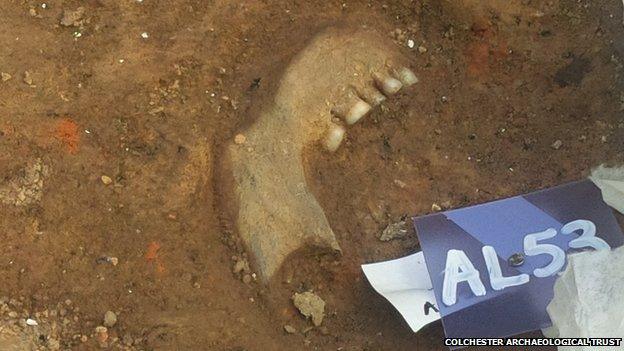'Significant' English Civil War stirrup found at Colchester
- Published

The team believe this horseshoe dates to 1648 as a result of its age and its position embedded in the river bank
The first underwater excavation at the site of an English Civil War siege has found "significant" 17th Century finds, including a stirrup.
It was found embedded in the bank of the river Colne, a mile outside Colchester, during the filming of Sky History's River Hunters programme, external.
Starving Royalist cavalry tried to flee the town's 1648 siege at this crossing.
Programme archaeologist Gary Bankhead said the finds helped bring to life the people caught up in the conflict.

The programme also explored the river Colne at the site of the siege, which is now the town's Castle Park
Other Civil War era finds revealed in the programme included a shoe buckle and lead shot, which were "incredible material evidence" of the conflict, he said.
The programme first explored the river in Castle Park where the siege took place, before heading a mile outside Colchester to where desperate Royalist forces tried to break out of the siege and cross the river.

This cooking pot shoe buckle - so called because of its shape - was in common use at the time of the siege

The horseshoe heel plate was found in the river at Castle Park and is also probably a Civil War era find
The British Civil Wars lasted from 1642 to 1651, external between supporters of Charles I and his successor Charles II, 9and opposing groups including Parliamentarians in England, Covenantors in Scotland and Confederates in Ireland.
The Royalist stronghold of Colchester, which claims to be Britain's oldest town, was encircled by Parliamentarian forces in 1648.
It was pummelled by canon and musket shot for 11 weeks until the Royalists surrendered on 28 August, ending the second English Civil War.
By this stage the besieged had resorted to eating their horses, dogs and even candles, according to contemporary reports, external.
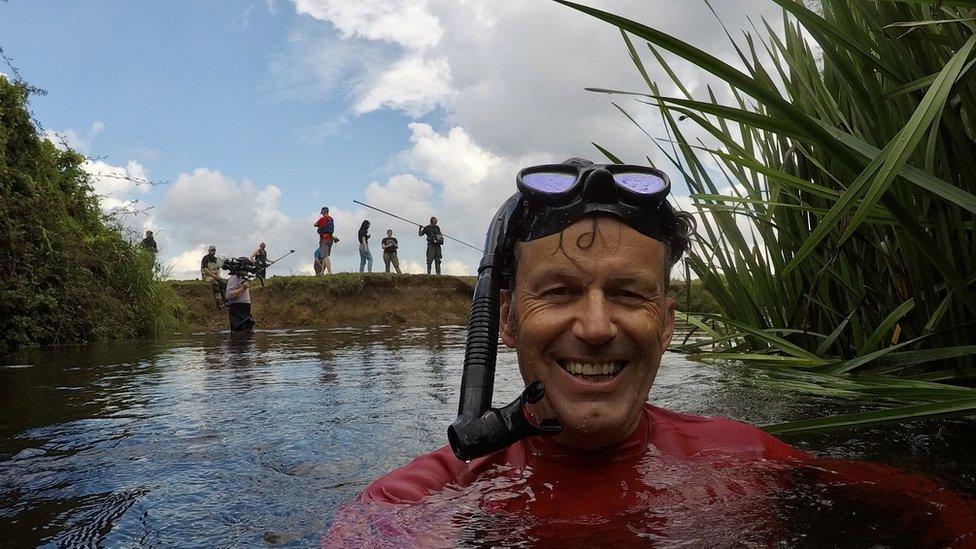
Gary Bankhead in the river Colne, close to where the stirrup was discovered
Little evidence has been unearthed of this troubled time in the town's history as residents used the debris to rebuild their homes.
Other finds included Roman clay roof tiles and coins from the late Roman and medieval eras.
Mr Bankhead said he was "flabbergasted at the quantity of Roman tiles just lying on the riverbed".
The Sky History River Hunters programme on Colchester will be aired on Monday 3 May at 21:00 BST.

Everything found during the programme belongs to the landowners and will remain in Colchester

Find BBC News: East of England on Facebook, external, Instagram, external and Twitter, external. If you have a story suggestion please email eastofenglandnews@bbc.co.uk, external
Related topics
- Published20 December 2020
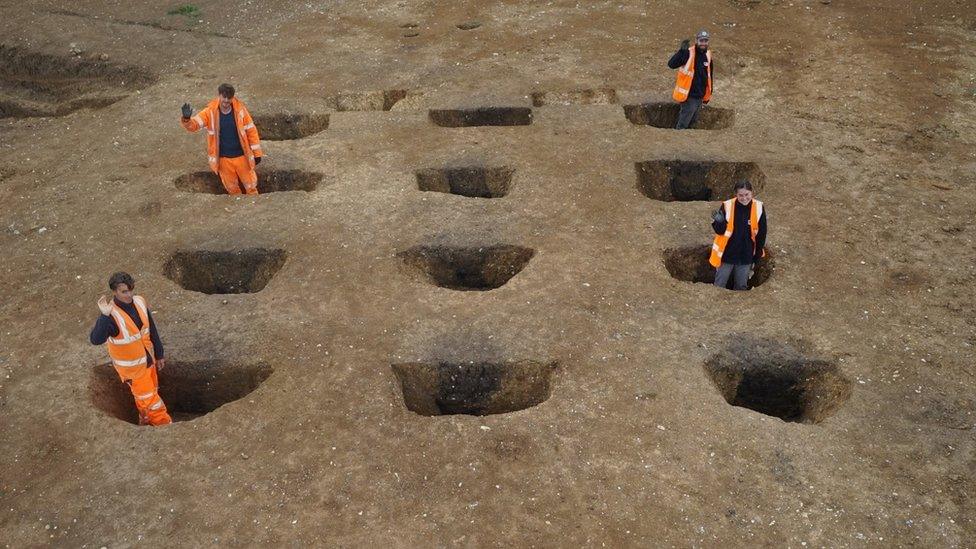
- Published18 November 2020
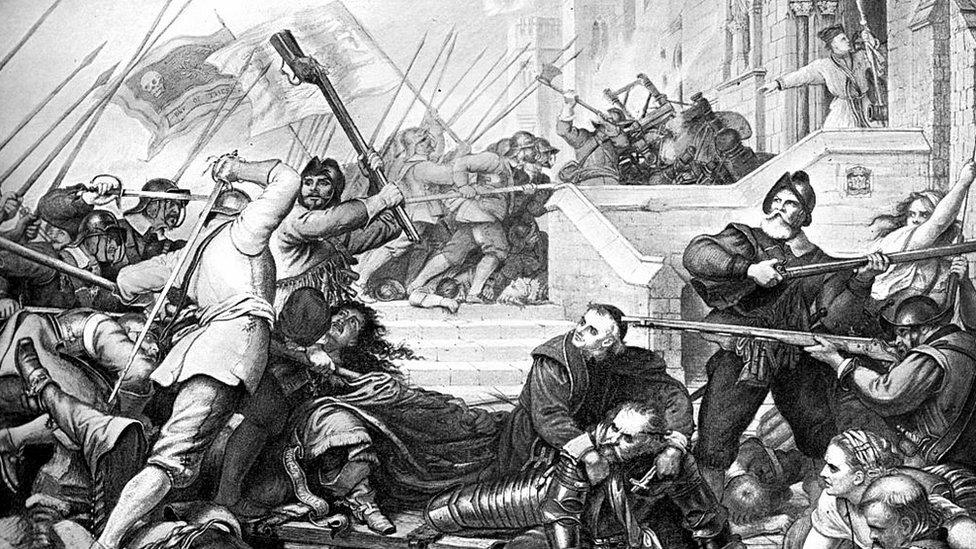
- Published13 July 2020
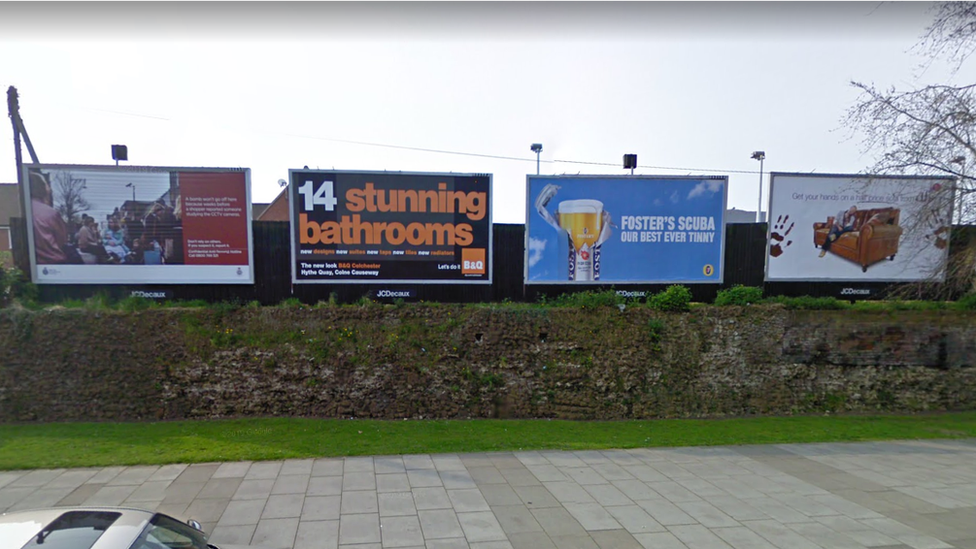
- Published15 February 2020
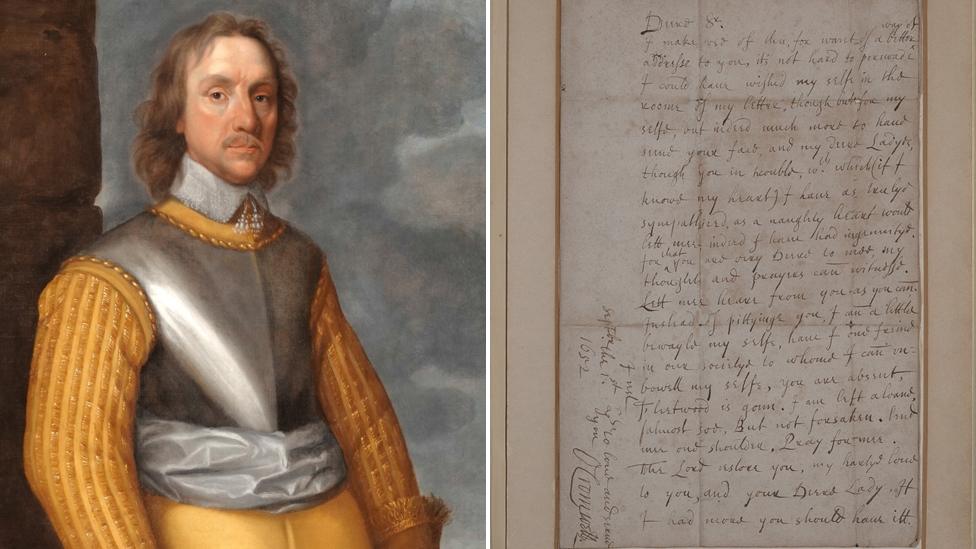
- Published28 October 2017
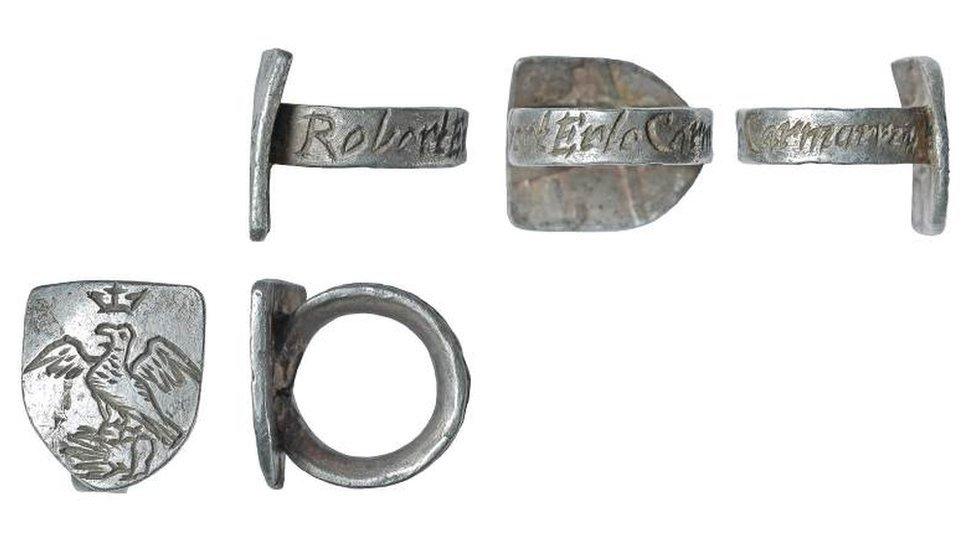
- Published7 July 2014
